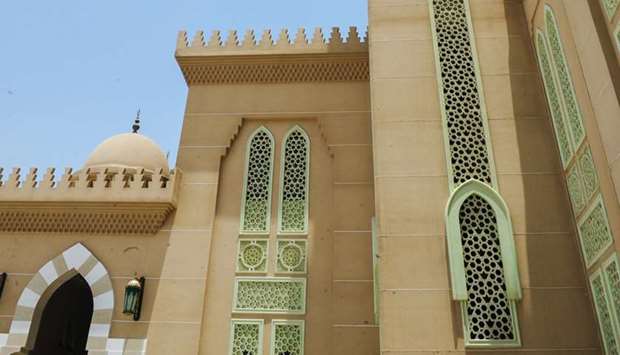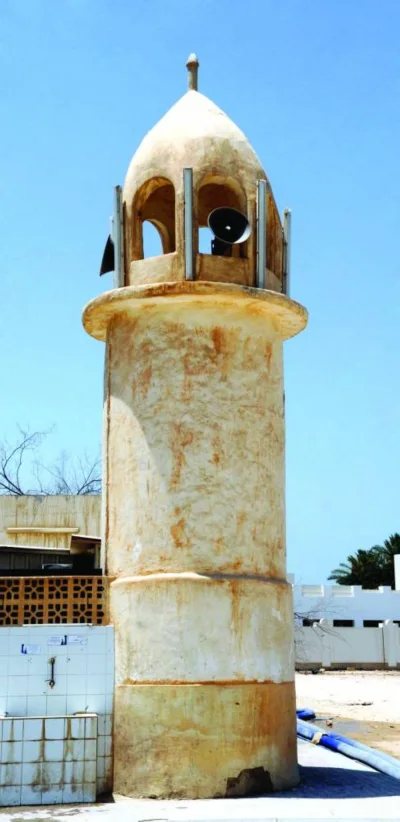Allah The Almighty Says (what means):
{Your wealth and your children are but a trial, and Allah has with Him a great reward.} [Qur’an 64:15]
{Every soul will taste death. And We test you with evil and with good as trial; and to Us you will be returned.} [Qur’an 21:35]
Ibn ‘Abbaas, may Allah be pleased with him, commented on this verse saying, “We test you with hardship and ease, with health and illness, with richness and poverty, with the lawful and the unlawful, with obedience and disobedience and with guidance and misguidance.”
In a Hadith (narration) on the authority of Huthayfah, may Allah be pleased with him, he said that ‘Umar, may Allah be pleased with him, said, “‘Who has memorised a Hadith on the authority of the Prophet, sallallaahu ‘alaihi wa sallam, about the trial?’ Huthayfah said, ‘I heard him saying: “Man’s trial is in his property, family and neighbour and it is expiated by his prayers, fasting and charity.”’”[Al-Bukhari and Muslim]
In a Hadith on the authority of Abu Hurayrah, may Allah be pleased with him, he said that the Prophet, sallallaahu ‘alaihi wa sallam, said: “Allah The Almighty Said, ‘For every misdeed there is an expiation; fasting is for Me and I give reward for it…” [Al-Bukhari]
According to another narration: “Good deeds expiate sins and fasting is for Me and I give reward for it. (i.e. it expiates sins and is also a reason for receiving reward from Allah.”) [Ahmad]
In a Hadith on the authority of Abu Hurairah, may Allah be pleased with him, he said that the Messenger of Allah, sallallaahu ‘alaihi wa sallam, said: “The five (daily) prayers, and the Friday Prayer to the (next) Friday Prayer, and the Ramadan to the (next) Ramadan are expiations of sins committed in between (their intervals); provided that the grave major sins are avoided.”[Muslim]
In a Hadith on the authority of Abu Sa‘eed al-Khudri, may Allah be pleased with him, he said that he heard the Messenger of Allah, sallallaahu ‘alaihi wa sallam, saying: “Whoever fasts Ramadan and knows its limits and avoids whatever he should avoid in it, it (Ramadan) will be an expiation of what is before it.”[Ahmad] [Ibn Hibbaan: Saheeh]
Benefits and rulings:
First: Man could be tested and tried with good or evil. He could be tested with good by being given abundant wealth and granted successive blessings. He could also be tested with evil like being afflicted with distress, worries and diseases.
Second: Children and property are a trial for man because he may overlook the rights of Allah for their sake and out of his love for them. Hence, this would be a cause for inflicting punishment on him in the Hereafter. Moreover, one’s children have rights over him; such as teaching and bringing them up, providing for them, etc. If one neglects or does not perform these rights properly, he will be held guilty.
Third: Acts of disobedience and sins are a trial. Anyone who is tried with any sin such as keeping in contact with a woman who is unlawful for him or ill-gotten gains, is undergoing a trial. Some righteous people may be tried in this matter, as Allah The Almighty Says (what means):
{Indeed, those who fear Allah - when an impulse touches them from Satan, they remember [Him] and at once they have insight.} [Qur’an 7:201]
{And those who, when they commit an immorality or wrong themselves [by transgression], remember Allah and seek forgiveness for their sins — and who can forgive sins except Allah? — and [who] do not persist in what they have done while they know.} [Qur’an 3:135]
Fourth: Those who are tried with a sin and insist on committing it should do a lot of good deeds because good deeds expiate sins. Allah The Almighty Says (what means): {Indeed, good deeds do away with misdeeds.} [Qur’an 11:114] Perhaps, when one frequently performs acts of obedience, they could be a cause for him to be released from the captivity of this sin as Allah The Almighty might guide him because of his obedience to a sincere repentance.
Fifth: These Hadiths prove that fasting expiates sins. The Hadeeth that was narrated by Abu Hurairah, may Allah be pleased with him, might be understood as negating the expiation of sins by fasting. However, this Hadith means that good deeds expiate sins, whereas fasting expiates sins and gives extra reward to such expiation. It means the fasting that is offered with full sincerity to Allah without any ostentation.
Sixth: An-Nawawi said: “It may be said that if the ablution expiates sins; then what sins do the prayers expiate? If the prayers expiate sins; then what sins do the congregational prayers, Ramadan, the fasting of ‘Arafah (the ninth of Thul-Hijjah) and ‘Aashooraa’ (10th of Muharram) and saying ‘Aameen’ in prayer in the same time with angels expiate? There are Hadiths indicating that performing such acts expiate sins. The answer proposed by scholars is that each one of the aforementioned acts of worship is fit for expiation. If there is a minor sin, it would be expiated. However, if there is no major or minor sin to be expiated, they would be recorded as good deeds and would raise one’s rank in Paradise. If these acts of worship meet a grave major sin, we hope that they would alleviate the punishment of these grave major sins.”
Seventh: People’s rights are not expiated by these acts of worship, whether these rights are minor or major. Rather, one must free himself from liability by returning these rights to those who deserve them or by asking them to absolve him.
Eighth: The virtue of fasting and that it is a cause for expiating sins.
Ninth: This virtue of having sins expiated is attained by those who preserve their fasting from being nullified. The evidence for this is the Hadith narrated by Abu Sa‘eed al-Khudri, may Allah be pleased with him, “Whoever fasts Ramadan and knows its limits and avoids whatever he should avoid in it…” Accordingly, the Muslim must preserve his day and night during Ramadan by refraining from saying anything unlawful; such as back-biting and tale-bearing. The Muslim must also lower his gaze and avoid looking at anything unlawful like TV serials, entertainment shows or the like which are displayed in abundance in Ramadan. We supplicate Allah to guide us and all Muslims to the right path.
Article source: http://www.islamweb.net/emainpage/
Feeding the hungry
Giving food is a good gesture of Allah’s Mercy. In Surah “Al-Insan” Allah The Exalted Says (what means): {And they give food in spite of love for it to the needy, the orphan, and the captive…} [Qur’an 76:8]
Ibn ‘Abbas, may Allah be pleased with him, and Mujahid, may Allah have mercy upon him, said: “This verse denotes that they feed the needy, the orphan and the captive despite the scarcity of food and their need and love for it.”
What about you and your food?
How great a deed is feeding the hungry in our time!
Allah The Exalted Says (what means): {Or feeding on a day of severe hunger…} [Qur’an 90:14]
An-Nakha‘i, may Allah have mercy upon him, commented on this verse saying, “They feed the hungry at times when food is not ample.”
Mohamed ibn al-Munkadir, may Allah have mercy upon him, said: “Feeding hungry Muslims guarantees the forgiveness of sins.” He also said on another occasion: “Feeding the hungry and saying kind words to others usher you to Paradise.”
Dear brother and sister, you may notice how our days - in some Muslim countries - have turned into days of severe hunger. Food has become scarce and as well as being too expensive for the poor.
What about you, dear readers? What about your food?
Feeding people in general and a hungry person in particular has been explicitly mentioned in the command of the Messenger of Allah, sallallaahu ‘alaihi wa sallam (may Allah exalt his mention). Abu Moosa al-Ash‘ari, may Allah be pleased with him, reported that the Prophet, sallallaahu ‘alaihi wa sallam, said: “Feed the hungry, pay a visit to the sick and free the captives.” [Saheeh] A reported saying reads, “The best charity is to satisfy a hungry person.” Alas, a Muslim may sit at an Iftar table with delicious and tasty dishes while his neighbours break their fast with a few morsels of food, if they can be found!
Our righteous predecessors, may Allah have mercy upon them, were keen to feed people and favoured this act of worship over many others, whether it was for a hungry poor person or feeding a righteous Muslim. Poverty is not an essential condition in this regard. The Messenger of Allah, sallallaahu ‘alaihi wa sallam, said: “O people! Spread the Islamic greetings amongst yourselves, feed the hungry, maintain kinship relations, observe prayer at night while people are asleep and you will peacefully enter the Paradise.” [Saheeh]
Some of the righteous predecessors said, “It is better for me to invite ten of my friends and feed them delicious food that they like than freeing ten slaves from the children of Isma‘eel, may Allah exalt his mention (i.e. Arabs).”
Abu As-Siwar al-‘Adawi, may Allah have mercy upon him, said: “Some men from the ‘Uday tribe used to pray in this mosque and none of them would break his fast alone. If one found someone to eat with, he would eat. If he could not find someone to eat with, he would take his food and go to the mosque to share it with the people in the mosque.”
Fruits of feeding the hungry:
The act of worship of feeding the hungry gives rise to many other acts of worship such as showing affection towards one’s fellow Muslims whom he feeds and this can be a reason for him being granted Paradise. The Prophet, sallallaahu ‘alaihi wa sallam, said: “You shall not enter Paradise as long as you do not affirm belief (in all those things which are the articles of faith) and you will not believe as long as you do not love one another.” [Muslim]
It also gives rise to (the act of worship) being in the company of righteous people and hoping for the rewards of Allah The Almighty in offering them food as they gain strength to perform acts of worship.
Article source: http://www.islamweb.net/emainpage/



